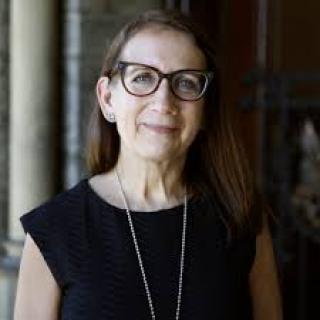New York City Symposium Recognizes Need for Refugee Action
By Rani Allan
An annual academic and policy symposium titled Whither Migration? New Directions in Research and Policy in an Era of Nationalism was held in early October at the Center for Migration Studies of New York City. The day-long event covered a number of topics related to the worldwide refugee and migration crises that are ongoing, highlighting the complexities and urging the public to action. Topics ranged from anti-immigration sentiment in the Trump Era, to obstacles facing refugees in their asylum process, and the role of civil society.

Katharine Donato, Professor of International Migration at Georgetown University
The Symposium started with a presentation by Katharine M. Donato of Georgetown University who called attention to the significantly lower rate of handling refugee cases in President Trump’s current term. Specifically, in the first six months of his presidency, less than one hundred cases were processed on a monthly basis , as compared to an average of 2,400 per month during Obama’s time in office. Despite the continued need for refugee intake, the current administration has also included a slowed application process for asylum and immigrant legal status in the home countries than former President Obama’s — adding to the already complex process that the displaced must undergo. Donato illuminated the clear link between the trend of Christian nationalism in the U.S. and anti-immigration rhetoric. Districts with more evangelical Christians possess a larger base of support for keeping foreigners out of the country, and have seen a higher rate of approval towards President Trump’s anti-immigration and anti-refugee policies.
It’s not just refugees: the Trump Era has also witnessed additional obstacles to migrants who are already in the United States. In September of this year, President Trump ordered the rescindment of the Deferred Action for Childhood Arrivals (DACA) program — jeopardizing the legal status and livelihoods of the nearly 800,000 DACA recipients and their loved ones. And earlier this month, a new rule in the Federal Register allowed the government to surveil all social media accounts of immigrants, including foreign-born citizens. This new policy presents a dangerous threat into the privacy and security of immigrants in the United States, especially people of color.

Syrian children march in the refugee camp in Jordan.
Outside of U.S. borders, refugee crises abroad were also a major focus of the Symposium. During the last session — titled “The Refugee and Migration Compacts: Content and Intersection” - panelist remarks and questions afterward emphasized the need for earlier and more accurate warnings of anticipated displacements. Ideas that were raised included tracking economic factors that can lead to displacements, identifying conflict situations, documenting human rights violations, monitoring environmental change, and detecting human trafficking. Moreover, panelists and attendees came into agreement that immigration reform should be coupled with labor standards. Economic integration, which is one of the major obstacles refugees and migrants face upon arrival in a new country, is a necessary mechanism to handle the steady arrival of newcomers.
Each session of the Symposium, particularly the final one, addressed the importance of civil society in working to achieve stability for refugees. Panelists expressed the need for civil society organizations to serve as mediators between governments and displaced people for asylum-seeking reform. They highlighted the valuable services these organizations can provide, particularly fundamental resources such as lawyers and interpreters. Davide Torzilli, Senior Policy Advisor for the United Nations High Commissioner for Refugees, mentioned the need for civil society to bring the realities faced by displaced families to others in order to garner support. The Unitarian Universalist United Nations Office aims to address all of these issues and more, including action congregations can take, at its Intergenerational Spring Seminar in April 2018.
Overall, an increase in attention and action is fundamental to advance the cause of refugees and migrants. As this past year has witnessed a steady rise in the number of vulnerable groups seeking safety, policies in the U.S. have worsened their situation. But despite the change in policies, the need to put in place accountability measures for nation-states remains necessary. Civil society, on the other hand, will continue to call for the inclusion of the displaced.